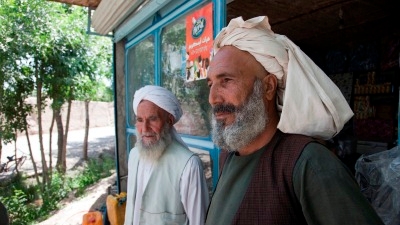NAWIN AND ENJIL DISTRICTS, Afghanistan – With little prompting, Mohammad Ghous lifts his shirt to expose a broad, barrel chest punctured by a prominent scar above his heart. He is one of about 12,500 people who rely on a 13-kilometer stretch of paved road that runs between five villages, not far from the city of Herat in western Afghanistan.
But not long ago, the road was almost impassable. After decades of conflict and subsequent decay, it was a pot-holed problem that villagers complained about because it spread dust and mud on nearby crops, and hampered contact with city markets, hospitals and essential services.
It was only after community development councils (CDCs) from five villages got together, stretching from Nawin to Enjil district, that a road re-building project was launched. Funds from the National Emergency Rural Access Program (NERAP) were released to tackle the job in 2010.
Supported by the World Bank and Afghanistan Reconstruction Trust Fund (ARTF), NERAP aims to provide year-round access to basic services and facilities in the rural areas. It also strives to enhance people’s well-being and promote economic growth.

